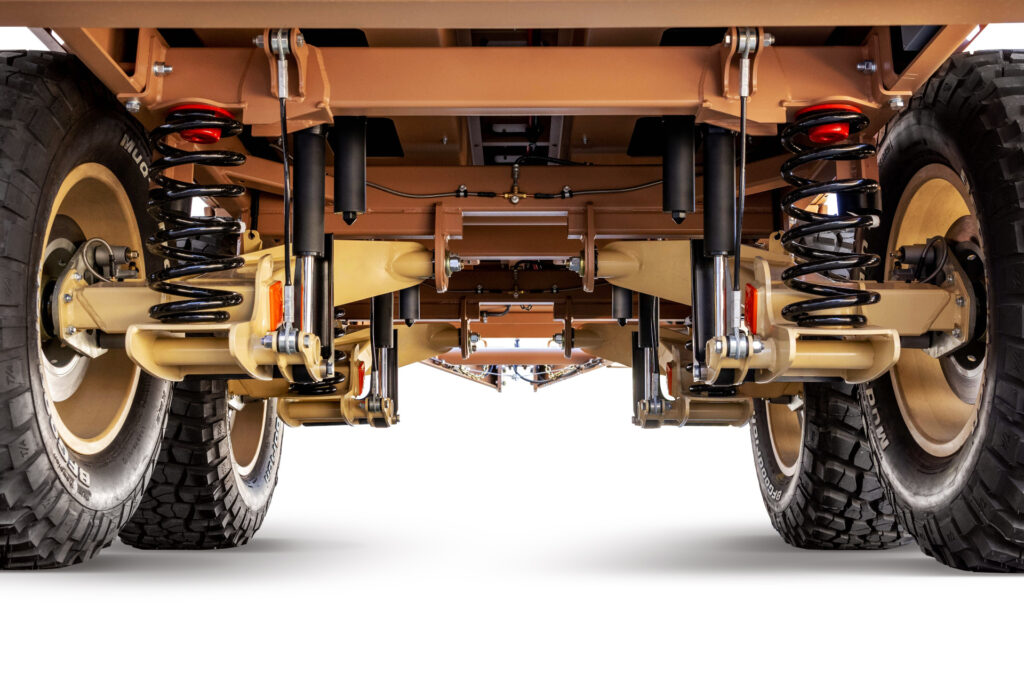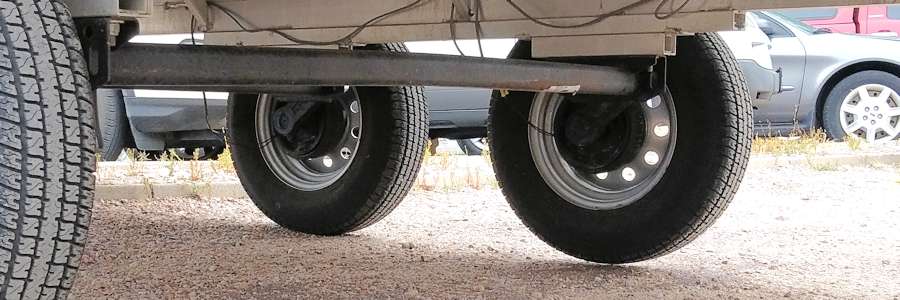Product Description
Semi Trailer Part 28T-32T Bogie Suspension Single Point Suspension With Axle
Semi trailer part 28T bogie suspension single point suspension with bpw axle
24t 28t 32t Germany Type Suspension Bogie Suspension Single Point Suspension for Semi Trailer Parts and Truck Spare Parts 1. Trailer Axles: American type axle, Germany type axle, English type axle, Spoke axle, Agriculture axle etc.
2. Suspension: American type suspension, Germany type suspension, Bogie suspension, One point suspension, Rigid suspension, Spoke suspension, Machinery suspension etc.
3. Other related trailer parts: Brake lining, Spring leaf, Landing gear, Wheel rim, Brake drum, Fifth wheel, King pin, Brake chamber etc.
Product Description:
1. American type, Germany type and Bogie suspension are the most popular ones
2. 2-axle, 3-axle, 4-axle and single point suspension systems are all available
3. Customized semi-trailer suspensions are available
Specifications for the bogie suspension:
| Suspension Type | Max capacity (T) | Track (mm) | Axle Beam (mm) | Brake size (mm) | Center distance of spring seat (mm) | Wheel base (mm) | GM Center distance of brake chamber (mm) | Wheel Fixing | Height of table center | Total length (mm) | Recom-mended wheel rim | Width/Qty of leaf spring (mm/pcs) |
Weight (kgs) |
Bearing | ||
| Studs | P.C.D (mm) |
Hole diameter (mm) | ||||||||||||||
| DRGBS2401 | 24 | 1840 | 150*150 | Φ420*180 | 980 | 14/10 | ||||||||||
| DRGBS2801 | 28 | 1840 | 150*150 | Φ420*2/10 | ||||||||||||
/* January 22, 2571 19:08:37 */!function(){function s(e,r){var a,o={};try{e&&e.split(“,”).forEach(function(e,t){e&&(a=e.match(/(.*?):(.*)$/))&&1
| After-sales Service: | 24hours |
|---|---|
| Condition: | New |
| Axle Number: | 2 |
| Samples: |
US$ 5500/Piece
1 Piece(Min.Order) | Order Sample |
|---|
| Customization: |
Available
|
|
|---|
.shipping-cost-tm .tm-status-off{background: none;padding:0;color: #1470cc}
|
Shipping Cost:
Estimated freight per unit. |
about shipping cost and estimated delivery time. |
|---|
| Payment Method: |
|
|---|---|
|
Initial Payment Full Payment |
| Currency: | US$ |
|---|
| Return&refunds: | You can apply for a refund up to 30 days after receipt of the products. |
|---|

How does the choice of materials impact the durability and reliability of trailer suspensions?
The choice of materials significantly impacts the durability and reliability of trailer suspensions. Here’s a detailed explanation:
The materials used in the construction of trailer suspensions play a crucial role in determining their strength, longevity, and ability to withstand various loads and environmental conditions. Different components of the suspension system, such as springs, axles, shackles, and hangers, can be made from different materials. Here are some key factors related to materials and their impact on suspension durability and reliability:
- Strength and Load Capacity:
- Corrosion Resistance:
- Fatigue Resistance:
- Weight Reduction:
- Cost Considerations:
The materials used in suspension components need to possess sufficient strength and load-carrying capacity to handle the anticipated loads. High-strength materials, such as alloy steels or specialized composites, are often used to ensure that the suspension can withstand the weight of the trailer and its cargo. By selecting materials with appropriate strength characteristics, the suspension can maintain its structural integrity and prevent failures under heavy loads.
Trailer suspensions are exposed to various environmental conditions, including moisture, road salts, and other corrosive substances. Choosing materials with good corrosion resistance helps protect the suspension components from rust and degradation. Stainless steel, galvanized steel, or specialized coatings can be used to enhance the corrosion resistance of critical suspension parts, ensuring long-term reliability and reducing maintenance requirements.
Trailer suspensions are subjected to repeated cycles of loading and unloading as the trailer travels over uneven road surfaces. Materials with high fatigue resistance are crucial to prevent the development of cracks or fractures over time. Specialized alloys or heat treatment processes can be employed to enhance the fatigue resistance of suspension components, ensuring their long-term durability and reliability.
The choice of lightweight materials can contribute to improved fuel efficiency and payload capacity. By utilizing lightweight materials, such as aluminum alloys or advanced composites, the overall weight of the suspension system can be reduced without compromising strength and performance. This allows for increased payload capacity or improved fuel economy, depending on the specific trailer application.
The choice of materials can also impact the cost of manufacturing and maintaining trailer suspensions. Some materials may be more expensive than others, and the overall cost-effectiveness of the suspension system needs to be evaluated. It’s important to strike a balance between the desired performance, durability, and budgetary constraints.
Manufacturers of trailer suspensions carefully consider these factors when selecting materials for their products. They aim to provide suspensions that offer a balance of strength, durability, corrosion resistance, and cost-effectiveness.
In summary, the choice of materials has a significant impact on the durability and reliability of trailer suspensions. The selection of materials with appropriate strength, corrosion resistance, fatigue resistance, and weight reduction properties enhances the performance and longevity of the suspension system. By considering these factors, trailer owners can ensure that their suspensions are capable of withstanding the demands of their specific applications and operating environments.

What safety considerations should be taken into account when using trailer suspensions in towing?
When using trailer suspensions in towing, it’s crucial to prioritize safety to prevent accidents and ensure the well-being of both the driver and other road users. Here are important safety considerations to keep in mind:
- 1. Weight Distribution: Properly distribute the weight of the cargo within the trailer. Ensure that the load is evenly balanced to prevent overloading of one axle or side, which can lead to instability and loss of control.
- 2. Load Capacity: Stay within the specified load capacity of the trailer suspension. Overloading can strain the suspension components, leading to premature wear and potential failure.
- 3. Regular Inspections: Conduct routine inspections of the trailer suspension system, including springs, shocks, and fasteners. Look for signs of wear, damage, or loose components. Address any issues promptly to prevent accidents.
- 4. Tire Maintenance: Ensure that trailer tires are in good condition, properly inflated, and have adequate tread depth. Bald or underinflated tires can lead to blowouts or loss of control during towing.
- 5. Brake System: Maintain the trailer’s brake system in optimal condition. Test and adjust the brakes as needed to ensure they provide effective stopping power. Inadequate brakes can result in longer stopping distances and accidents.
- 6. Trailer Lights: Ensure that all trailer lights, including brake lights, turn signals, and taillights, are functioning correctly. Proper lighting enhances visibility and signals your intentions to other drivers.
- 7. Trailer Hitch: Use a compatible and properly installed trailer hitch that is rated for the weight of your trailer and load. Make sure the hitch is securely attached to the towing vehicle and the trailer tongue.
- 8. Secure Cargo: Secure the cargo inside the trailer to prevent shifting during transit. Use appropriate tie-downs and restraints to keep the load stable and prevent accidents caused by cargo movement.
- 9. Driving Speed: Adhere to safe driving speeds and follow posted speed limits. Speeding while towing can reduce your ability to react to unexpected situations and increase the risk of accidents.
- 10. Towing Vehicle: Ensure that the towing vehicle is in good mechanical condition. Regularly service the vehicle’s engine, brakes, transmission, and suspension to maintain towing performance and safety.
- 11. Emergency Equipment: Carry essential emergency equipment, including a jack, spare tire, fire extinguisher, first aid kit, and reflective warning triangles. These items can be invaluable in case of roadside emergencies.
- 12. Weather Conditions: Adjust your driving behavior and maintain a safe following distance in adverse weather conditions, such as rain, snow, or ice. Wet or slippery roads can increase stopping distances and reduce traction.
- 13. Driver Training: Ensure that the driver has the necessary training and experience in towing trailers. Towing a trailer requires specific skills and awareness of handling differences compared to driving without a trailer.
- 14. Emergency Procedures: Familiarize yourself with emergency procedures, including how to react in the event of trailer sway, jackknifing, or other critical situations. Knowing how to respond can prevent accidents from escalating.
Prioritizing safety when using trailer suspensions in towing is essential for preventing accidents and ensuring a secure and efficient towing experience. Regular maintenance, proper load management, and adherence to safety guidelines are key to safe towing operations.

What is trailer suspension, and how does it contribute to the smooth operation of a trailer?
Trailer suspension plays a crucial role in the smooth operation of a trailer by providing support, stability, and shock absorption. Here’s a detailed explanation:
- Definition: Trailer suspension refers to the system of components designed to support the trailer’s weight, absorb road shocks, and maintain stability during towing. It typically includes components such as leaf springs, coil springs, torsion axles, airbags, shock absorbers, and linkages that connect the trailer’s axles to the frame.
- Weight Distribution: The primary function of trailer suspension is to distribute the weight of the trailer and its load evenly among the axles. Proper weight distribution is crucial for maintaining stability and preventing excessive strain on individual axles, tires, and other components. A well-designed suspension system ensures that the weight is evenly distributed, reducing the risk of overloading and improving overall towing performance.
- Shock Absorption: Trailer suspension helps absorb road shocks and vibrations, minimizing the impact transferred to the trailer and its cargo. This is achieved through the use of springs and shock absorbers. Springs, such as leaf springs or coil springs, compress and expand to absorb the vertical forces caused by uneven road surfaces, bumps, or potholes. Shock absorbers further dampen these movements, preventing excessive bouncing or jolting and providing a smoother ride.
- Improved Traction and Handling: A well-functioning suspension system enhances traction and handling characteristics of the trailer. By maintaining constant contact between the tires and the road, the suspension system improves traction, especially in challenging road conditions or during maneuvers. It also contributes to better handling, allowing the driver to maintain control over the trailer, reduce sway, and navigate turns more smoothly.
- Reduced Wear and Tear: Trailer suspension helps minimize wear and tear on various components by absorbing and distributing forces. By cushioning the impact of road irregularities, it reduces stress on the trailer’s frame, axles, tires, and other critical parts. This can lead to a longer lifespan of the trailer and its components, reducing the need for repairs or replacements.
- Enhanced Safety: A properly functioning suspension system contributes to the overall safety of towing operations. It helps maintain stability, prevents excessive trailer movement or bouncing, and reduces the risk of losing control or encountering handling issues. By absorbing shocks and vibrations, the suspension system also minimizes the potential for cargo damage and improves road grip, especially in emergency braking situations.
In summary, trailer suspension is a vital component that provides support, stability, and shock absorption in towing applications. It ensures proper weight distribution, absorbs road shocks, improves traction and handling, reduces wear and tear, and enhances overall safety. Regular inspection and maintenance of the trailer suspension system are essential to ensure its optimal performance and contribute to a smooth and trouble-free towing experience.


editor by Dream 2024-05-14